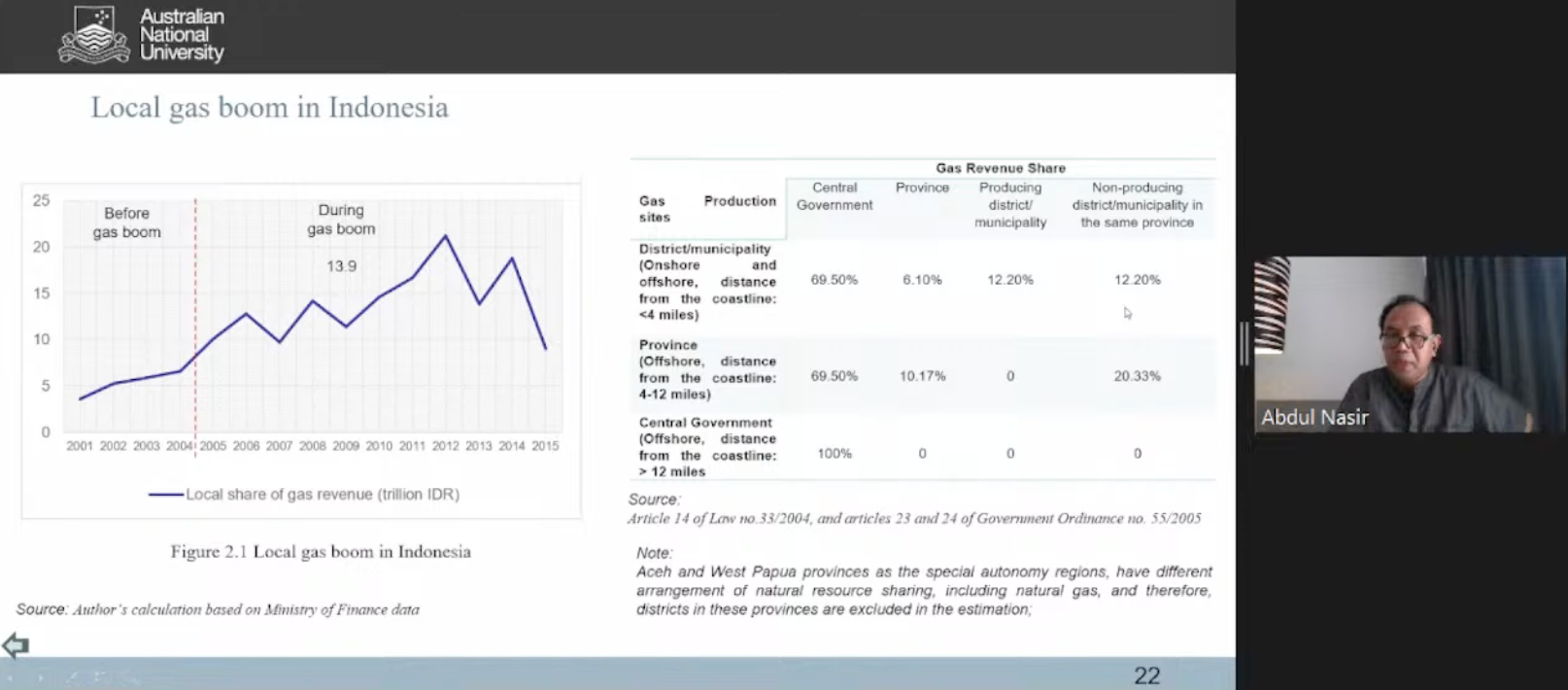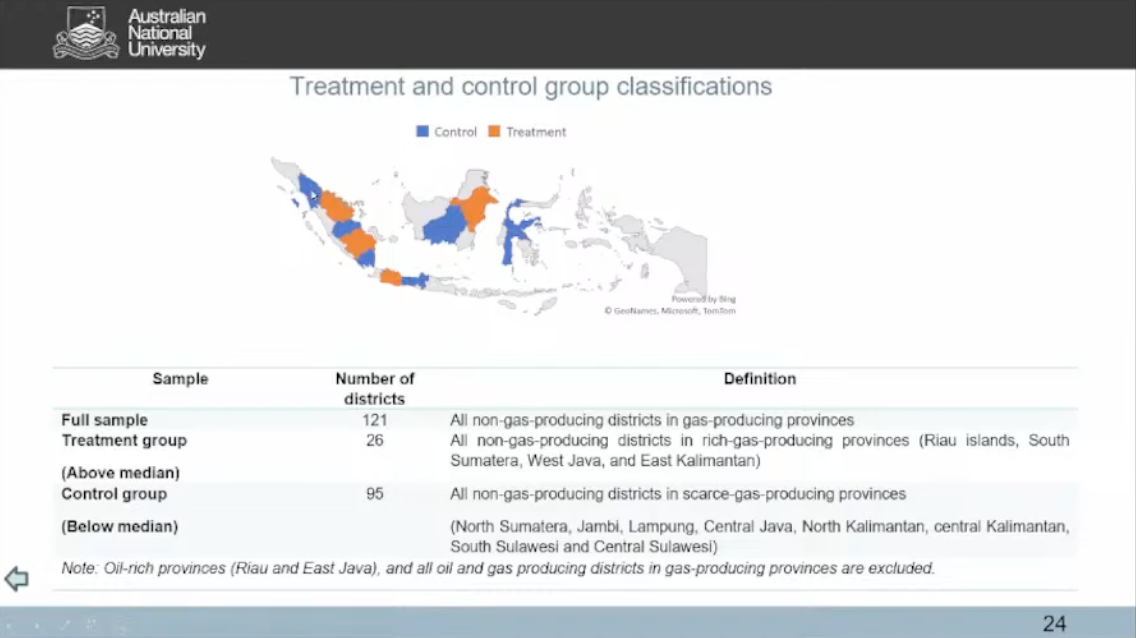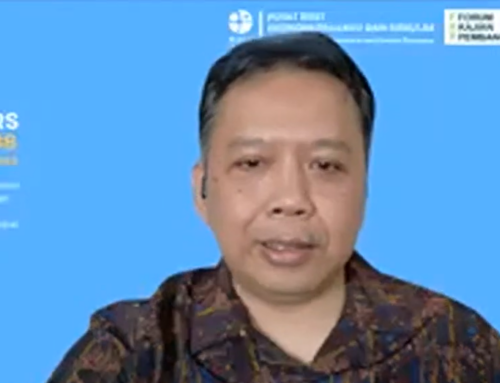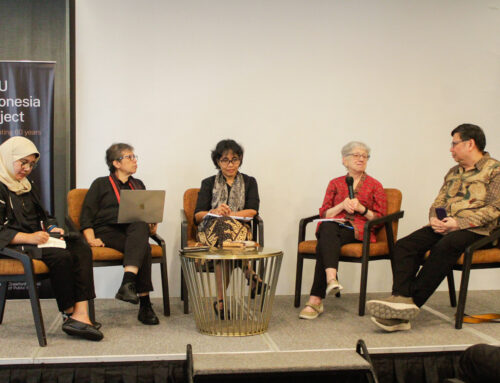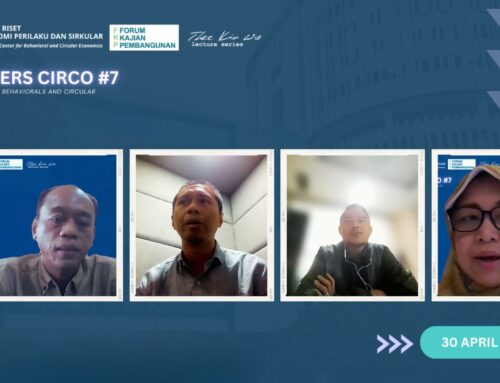FKP hosted by ANU Indonesia Project with Abdul Nasir (Arndt-Corden Department of Economics, The Australian National University). Wednesday, 13 March 2024
KEY POINTS:
- Natural gas plays a pivotal role in Indonesia’s economy, contributing significantly to state revenue and surpassing oil production in recent years. Despite its importance, there has been limited research on how gas extraction impacts local economies. This knowledge gap underscores the need for a deeper understanding of the economic effects of gas windfall on nearby regions.
- The findings of the study revealed that districts located in gas-rich provinces tend to have lower GDP per capita compared to those in provinces with limited gas resources. This suggests that non-gas-producing districts in gas-rich areas may not necessarily benefit economically from their proximity to gas extraction sites.
SUMMARY
- Natural gas plays a crucial role in Indonesia’s economy. From 2001 to 2015, it contributed approximately 579 trillion IDR to the state revenue, making it a significant source of non-tax income. Since 2002, gas production has even surpassed oil production, and by 2018, it represented about 60% of the total oil and gas production in the country. It’s projected to rise to 90% by 2050.Despite its importance, there’s been limited research on how natural gas impacts local economies, especially in neighboring areas. In particular, there has not been much focus on understanding how the windfall from gas extraction affects nearby regions.
- Gas windfall refers to the sudden increase in revenue due to a rise in global gas prices. This windfall can have both positive and negative economic effects, not only in the areas directly involved in gas extraction but also in neighboring regions. These effects are often influenced by government policies rather than market forces. To delve into this issue, Abdul Nasir (Arndt-Corden Department of Economics, The Australian National University) looked at how changes in global gas prices affect neighboring districts in Indonesia. These neighboring districts do not produce gas themselves but receive revenue from it through government policies on resource revenue sharing.
- The findings of the study revealed some interesting insights. Firstly, districts located in gas-rich provinces tend to have lower GDP per capita compared to those in provinces with limited gas resources. This suggests that non-gas-producing districts in gas-rich areas may not necessarily benefit economically from their proximity to gas extraction sites.
- Furthermore, the study found that gas windfall actually increased both the poverty rate and the number of people living below the poverty line in neighboring districts. This indicates that while gas extraction brings in revenue, it may not necessarily lead to overall economic development or poverty reduction in nearby areas.
- However, the impact of gas windfall varied across different regions. It had a significantly negative effect on neighboring economies in Java but not in the Outer Islands. Moreover, this negative effect was more pronounced in the long term rather than immediately after the windfall.
- The study suggests that further research is needed to understand the specific channels through which gas windfall affects neighboring economies. By doing so, policymakers can better tailor interventions to mitigate any negative impacts and ensure more equitable distribution of benefits from natural resource extraction.
